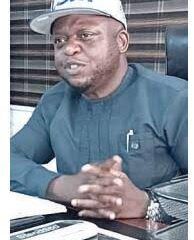Auto
Chinese brands have taken over truck market — Taiwo Shittu, ED, Lanre Shittu Motors

Executive Director of Lanre Shittu Motors, Mr Taiwo Shittu, speaks on high cost of vehicles, used vehicle imports and quality of Chinese brands, among other issues relating to the auto industry in this interview with some journalists in Lagos including NewsTrends
How has it been running an auto assembly plant in Nigeria?
We started our auto assembly plant in October 2018. So far, it has been a good experience for us. It has been smooth running the plant. We have two plants now; one for the truck, the other is the car assembly section.
The truck plant just won the Best Auto Plant of the Year Award in Nigeria at the Nigeria Auto Journalists Awards. I can tell you that it was based on merit. No one in the auto industry can fault it. We all know who is doing what. Our turnaround in terms of operation is high. The assembly is always busy with activities with a lot of local content. We make sure we patronise local steel industry. Most of the hard body is being done here by young Nigerians; you won’t believe the capability of these young Nigerians. They are young Nigerian engineers who have passion for what they do.
The plant is doing well. Right now, we are looking towards its expansion. We just got a grant from the Central Bank of Nigeria, CBN, at a single digit interest rate to expand our plant. That is where we are now.
Is the car plant in the same location with the truck plant?
Yes. They are both at the Amuwo, Lagos.
How much of local content do you incorporate into assembling of vehicles now?
Right now, we source our steel from the local market. For instance, the back body/trailer body, the tipping bucket, the diesel tanks are local content; they are mainly fabricated there. We make sure we patronise indigenous companies for these materials. The same goes for our lubricants and grease. You will be surprised what some of these young Nigerians are capable of doing. Nigerians have the skills. They just need the support of the government; this is what will make the industry to develop.
The current generation of leaders must invest and make sacrifice for the development of the next generation just like the Chinese did. In those days, many people looked down on the Chinese and derided them for looking haggard and wretched. What they did not know was that they were making sacrifice for the current generation. Today, the China’s story has changed. Nigeria also needs to do the same.
Why are the locally-made/assembled vehicles still expensive and beyond the reach of the common man?
The price is still tied to imports in some way. The effect of the COVID has taken the freight rate of imported containers from about $2,000 to $16,000 and above. And that has had a significant effect on pricing of products in Nigeria. This is because most of the things we use (vehicle components) are imported from China.
And that is why I fault the media team of this government. It has failed to enlighten the public on why things are generally expensive in Nigeria.
Freight rate accounts largely for why things are expensive right now. Freight rate from China has gone up astronomically after COVID; it had never happened before. Our company is 40 years now; this is the first time freight rate will cost so much. Bringing in a container of 40 feet from China used to be around $2,000 to $3,000. It is now over $16,000.
This is what the media team of the government needs to let the people know. The current high cost of things is caused by external factor that the government has no control over. The world is facing it. It is not only in Nigeria.
The dollar or exchange rate has its own issue, but it is minimal compared to this external factor of high freight rate.
Is there anything the business community or government can do about this problem?
It is not a deliberate action. It was precipitated by COVID-19. What happened was that at the peak of the COVID infection, many people were falling sick and some dying; a lot of containers were abandoned midway on the high sea. Now, many of the containers are not back at their bases, making them to have shortage of containers. And when the demand is high, the supply is low, the result is high price.
The solution is to work on returning the containers to their home countries and ease the shortage.
Are the products being made here of the same quality with those produced abroad?
They are of the same quality. Everything is regulated by the parent company. But nobody gets to the top overnight. I will take you back to China; they did not get to where they are now overnight. Nigeria was better than China in the ‘70s. Today, China has become a reference point because their former leaders made sacrifice for the present generation. Our own leaders too must be ready to make such sacrifice. It will be tough, but the result will be sweet victory. Industrialisation is the key to economic success of any country.
Are Nigerians not making enough sacrifice already?
This has to be consistent and it should cut across all strata of the society, the followers and the leaders. There is so much greed in the system. It’s in Nigeria you see people at a buffet packing food without any thought about those waiting in a queue yet to eat.
What has been the response of people to the JAC trucks being assembled in your factory? How many have you sold?
The response has been very encouraging. We’ve sold thousands. When we signed the dealership of the truck in 2014, it was rated number 9.
But today, we are the third highest selling heavy trucks in Nigeria. But when it comes to quality, people know it is JAC truck.
Are you saying Chinese trucks are leading the truck market in Nigeria?
Yes, they have taken over the market; it’s not only in Nigeria; it is everywhere.
Is this a function of low price?
Not just low pricing but it is also in terms of quality. The truth is that the Chinese brands have come to stay. In the area of truck, you either align with them or you get out of the business. They are getting better every day and these trucks are working (well). We have a lot of key players using the trucks. How many of these European trucks can you see on the road?

What is your assessment of the National Automotive Design and Development Council (NADDC) as an agency of government expected to facilitate your business?
I must say the agency has been very amazing, especially under the leadership of Jelani Aliyu as its director general. He is very sound; he has played in the big boys’ league in the US. I’m not surprised that he is performing well. We are getting a lot of support from him because he believes in this industry. I must say that with someone like him, we’re going to get there.
Government must give him more listening ear. We are lucky to have him. He is an asset to Nigeria. He has tried it in America and it worked; it will work in Nigeria too.

What has been the contribution of Lanre Shittu Motors to Nigeria after 40 years of the company’s establishment?
The company has contributed a lot to the Nigerian economy, especially when it comes to manpower, training and empowerment of young Nigerians. We have an empowerment scheme for school leavers, who have passion for automotive development.
They are trained for a period of four years and get paid even while on training. After the training, we send them to our customers across the country to service them. We ask them to get them employed, accommodated and be paid well. In some cases, they are given a car and placed on a good salary that we dictate.
We are getting good testimonies from those we sent to Kano, Bauchi, Ondo and Cross River states, among others. These are people that would have been bus conductors, touts or motor boys, now heading a facility of 300 to 500 trucks.
Those who own these trucks know that these guys taking care of the valuable vehicles are as important as their expensive trucks. Lanre Shittu Motors has done miraculously well to young Nigerians in the engineering sector, making them to actualise their dreams in life.
We have the graduate empowerment scheme too, with a different package. They are also trained for a period before we send them out to people who need their service. We have some people sending interested young graduates and school leavers to us for training.
For instance, Desmond Elliot, a member of the Lagos State House of Assembly, sent 10 people from his Surulere constituency to us for the scheme.
We just got a grant from the government. They have seen that what we are doing is extensive. Government did due diligence before giving out the loans. We are one of the best indigenous companies in the automobile industry.
We believe strongly in this auto policy that will make Nigeria a hub for auto producing vehicles in Africa. Government’s representatives have visited our factories a number of times and they have seen that we mean business. The plant is always busy. And in the auto industry, we are the only company that got the loan in the first set they just released.
What is your view about the crash in import duty of used vehicles by the government?
If we believe in Nigeria, we must do away with used vehicles. It’s part of the sacrifice that we need to make. We can start by making it look unattractive to reduce the volume being imported. We have to look for a good finance scheme to support the new vehicle purchase. It is not that Nigerians don’t like new vehicles; it is because finance is not there. And where there is a finance arrangement, the issue is the cost and how to pay back. If I’m buying a car on loan for my comfort, I may be sceptical about how to pay back without a reliable income. Government should therefore focus more on how to finance the commercial segment of new vehicles’ purchase. Since the vehicles are going to be used for business, it will be easy to pay back the loans. This will also generate more employment opportunities for the people. Giving a loan to anyone to buy a vehicle that will be used for business is like an asset that will bring back money. There is no way you will buy a new truck on loan for a business venture and you will not make back the money in one and a half years. And in the case of trucks, they will still be on the road for 15 years or more. Look at the farmers in the North producing tomatoes and others, most of these perishable food items get destroyed in the farm because they cannot afford the high cost of transporting these goods to the big markets in the cities like Lagos and Abuja. The cost of moving the items from Kano to Lagos can be as high as N1 million. How many of these peasant farmers can afford that? But if the government can have a finance scheme for new commercial vehicles, they would be able to buy the vehicles and promptly move the goods to Lagos, Ibadan, Port Harcourt, Aba, Onitsha, Abuja and those places with high population. More people would be encouraged to return to the farm and do more.
Auto
CFAO subsidiary LOXEA unveils BYD electric vehicles in Nigeria
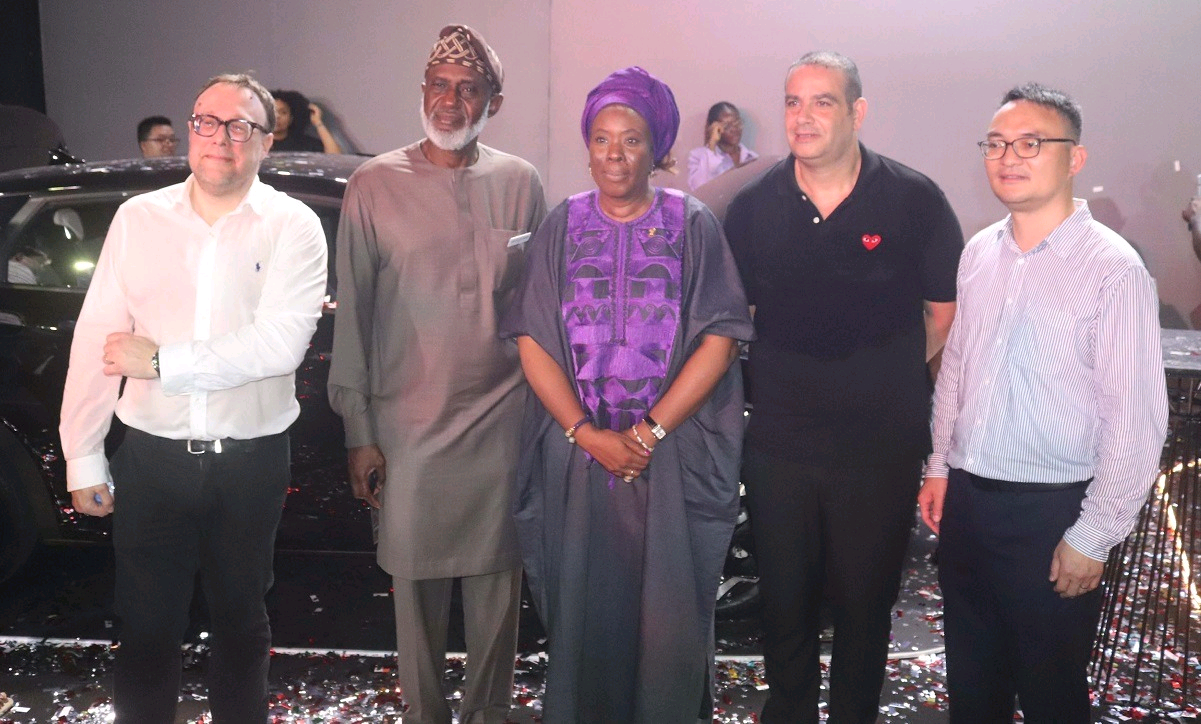
CFAO subsidiary LOXEA unveils BYD electric vehicles in Nigeria
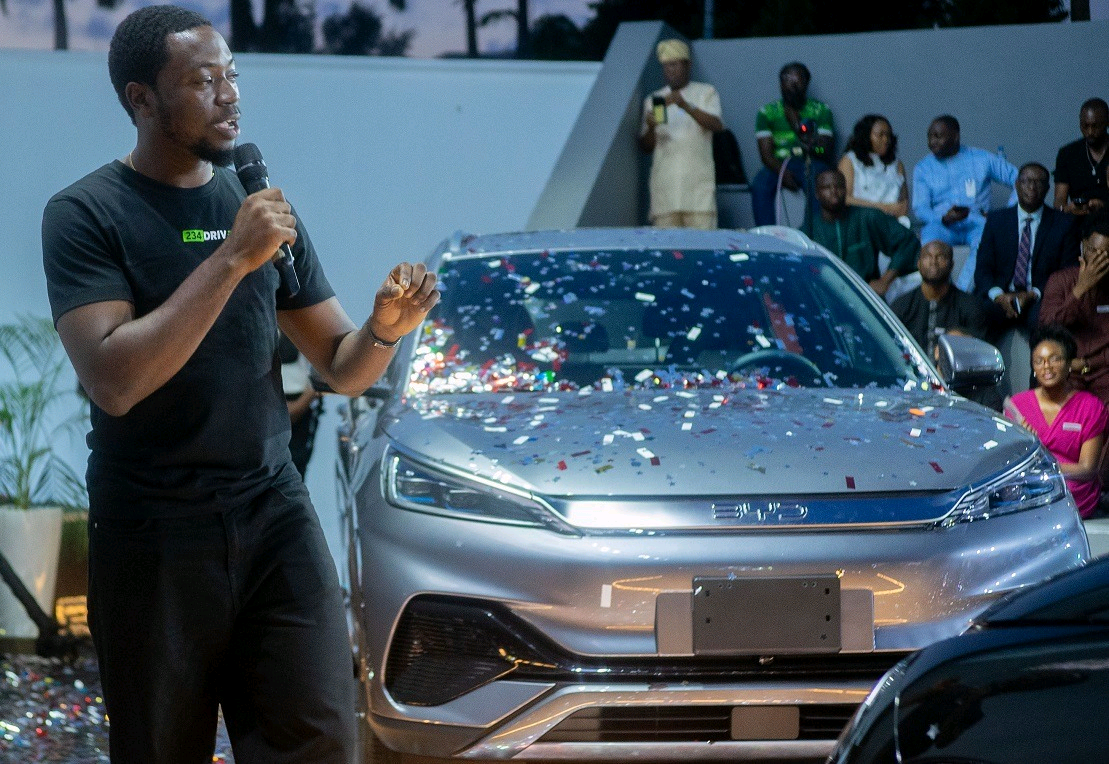
A subsidiary of CFAO Mobility, LOXEA Nigeria, has introduced the BYD brand of electric vehicles to the Nigerian market.
LOXEA has thus become the pioneer in bringing the renowned electric vehicles (EVs) manufactured by BYD (Build Your Dreams) into the country.
BYD is a high-tech multinational company and the world leader in electric and plug-in hybrid vehicles.
“As a Fortune Global 500 enterprise, BYD relentlessly innovates to create a sustainable future,” said the automaker.
“In November 2024, BYD becomes the first company in the world to achieve the milestone with the roll-off of its 10-millionth NEV.
“BYD achieves 4.27 million new energy vehicle sales in 2024, claiming the global sales champion in the third consecutive year.”
Managing Director of LOXEA Nigeria, Mr. Mehdi Slimani, stated, “We are proud to distribute this type of electric vehicle and all its associated services.
“Our upcoming showroom in Victoria Island, Lagos will be a place dedicated to the discovery of BYD vehicles, combining modernity, comfort, and economy of use. “It is very important for CFAO Mobility in Nigeria to participate in this way in the country’s energy transition and support our customers who wish to make the switch to electric.”
Chief Executive Officer of CFAO Mobility, Marc Hirschfeld, spoke on the importance of this launch for both the company and the country, saying, “BYD is one of the world’s leading manufacturers of electric vehicles, with a level of innovation know-how that now matches the expectations of our markets in Africa.
“A whole new ecosystem has to be designed around mobility in African cities.
“This applies not only to individual and corporate customers, but also to stakeholders including urban public transport networks and government agencies.
LOXEA specialises in providing innovative mobility solutions across Africa.
With a commitment to sustainability and excellence, it delivers high-quality mobility services, from electric vehicle leasing to fleet management and infrastructure support.
LOXEA is a leading player in innovative mobility solutions in Africa, offering clients a range of 100% electric vehicles from BYD.
As a pioneer in the deployment of electric vehicle solutions across the continent, LOXEA is bringing to Nigeria a comprehensive suite of services associated with electric vehicles.
This includes the installation of electric charging stations, vehicle maintenance, repair services, and the provision of spare parts.
In addition to providing an inaugural charging station at the upcoming LOXEA Victoria Island showroom, the company is also offering an adaptable solution that allows customers to charge their EVs conveniently at home.
The company says more information on this can be obtained from its website: https://www.byd-nigeria.com/ .
Auto
Lanre Shittu Motors to endow Automobile Department of Lagos Technical College
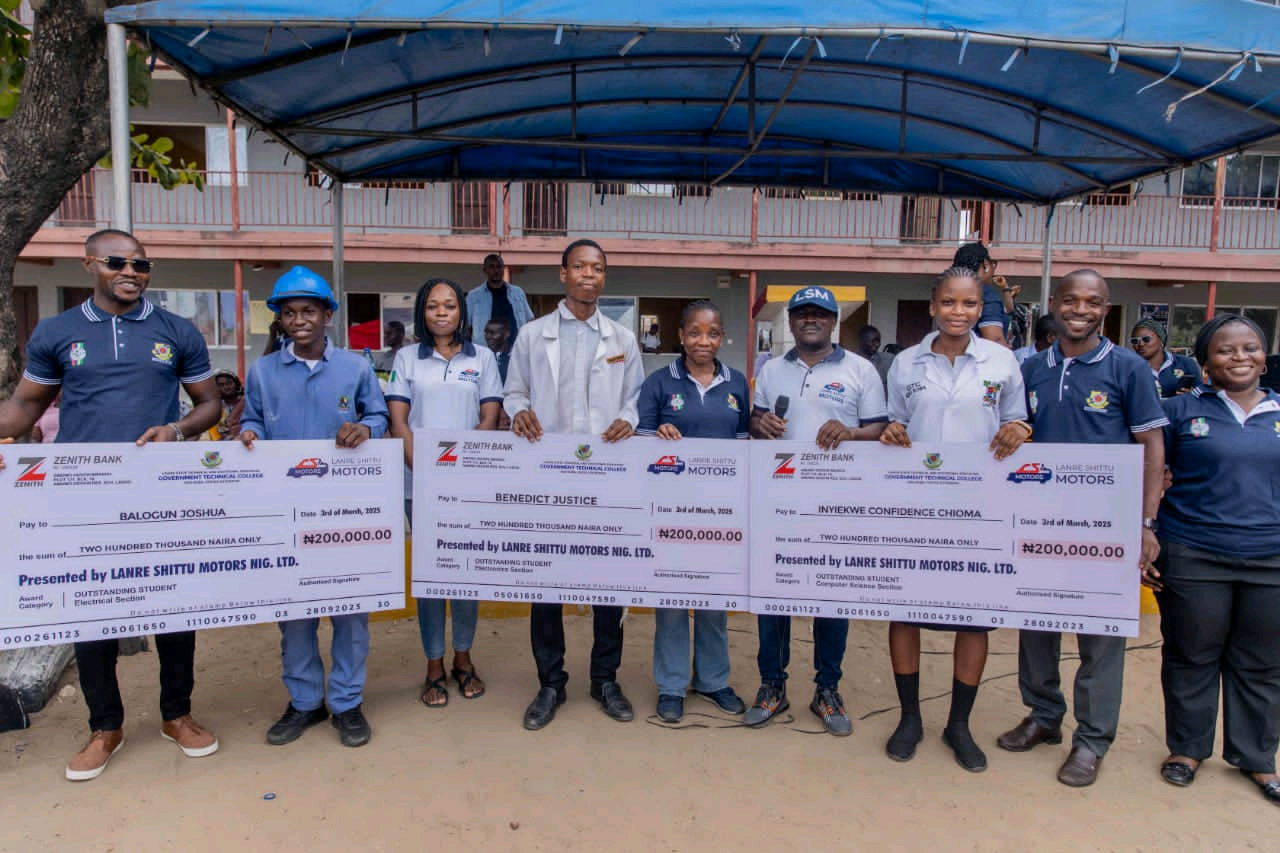
Lanre Shittu Motors to endow Automobile Department of Lagos Technical College
Lanre Shittu Motors has announced a novel idea that will boost automobile studies in a Lagos technical college.
Specifically, it has pledged to adopt the Automobiles Department of the Government Technical College, Aso-Soba in the Festac area of Lagos.
This is intended to raise academic and practical programme standards of the school.
The company said this would involve adequate funding, in-school training and intensive industrial training (IT) with welfare package to encourage more young people to pursue academic career in automotive engineering.
Business Support/Admin Manager of LSM, Mr Babatunde Adenuga, disclosed this in Lagos, in an interview with journalists.
Adenuga represented the LSM Managing Director, Mr Taiwo Shittu, at the just concluded Engineering Week of the college sponsored by the auto company, where he unveiled the plan to the staff and students at the event’s grand finale.
Aside from the needed financial support to make the auto department functional and standard, he said LSM would provide the tools, overall wears/workshop uniform, among others, as part of the welfare package for the students.
He said it would be a win-win situation for the school and the company.
Adenuga said, “The school will benefit immensely from the LSM package for the department as we take the financial trouble of running the department away from them.
“Students from the department can come for their internship at LSM workshops, and getting jobs after school won’t be difficult.
“For us, it will be a seamless arrangement in getting suitable personnel familiar with our training and business orientation.”
He also said the LSM had been absorbing students from the school and others for their industrial training (IT), providing them with useful hands-on training and monthly stipend to keep them going.
The LSM MD, Taiwo Shittu, commenting on the support, said, “We’ll be part of the progress of the school. We want to own a department in the technical college, the automobile department of studies that will enable us to fund the place; take care of the welfare of students, providing the tools, overall uniform and other facilities.”
“At LSM, we see training the youths as part of our Corporate Social Responsibility. Every year, we take in youths into our facility and train them; even while in training, we give them stipends.”
The highpoint of the LSM-sponsored Government Technical College event was the presentation of prizes to outstanding students in the various competitions held for the Engineering Week.
Three of the students whose projects stood out such as locally produced water pumping machine and water heater went home with impressive cash awards.
Principal of the college, Mr Folarin Sunkanmi, expressed appreciation to LSM for the interest in the school, starting with giving the students the opportunity for industrial training and offering them monthly stipend.
The principal commended the LSM efforts of sponsoring the engineering week’s activities, whose theme was given as ‘Engineering for Sustainable Development (Innovators of tomorrow)’
He urged other companies to emulate the LSM example in order to boost the employability chances of products of the technical colleges and engineering departments of higher institutions in the country.
Auto
Nigeria’s firm, Weststar Associates, shines in Dubai, wins Daimler Truck EliteClass award
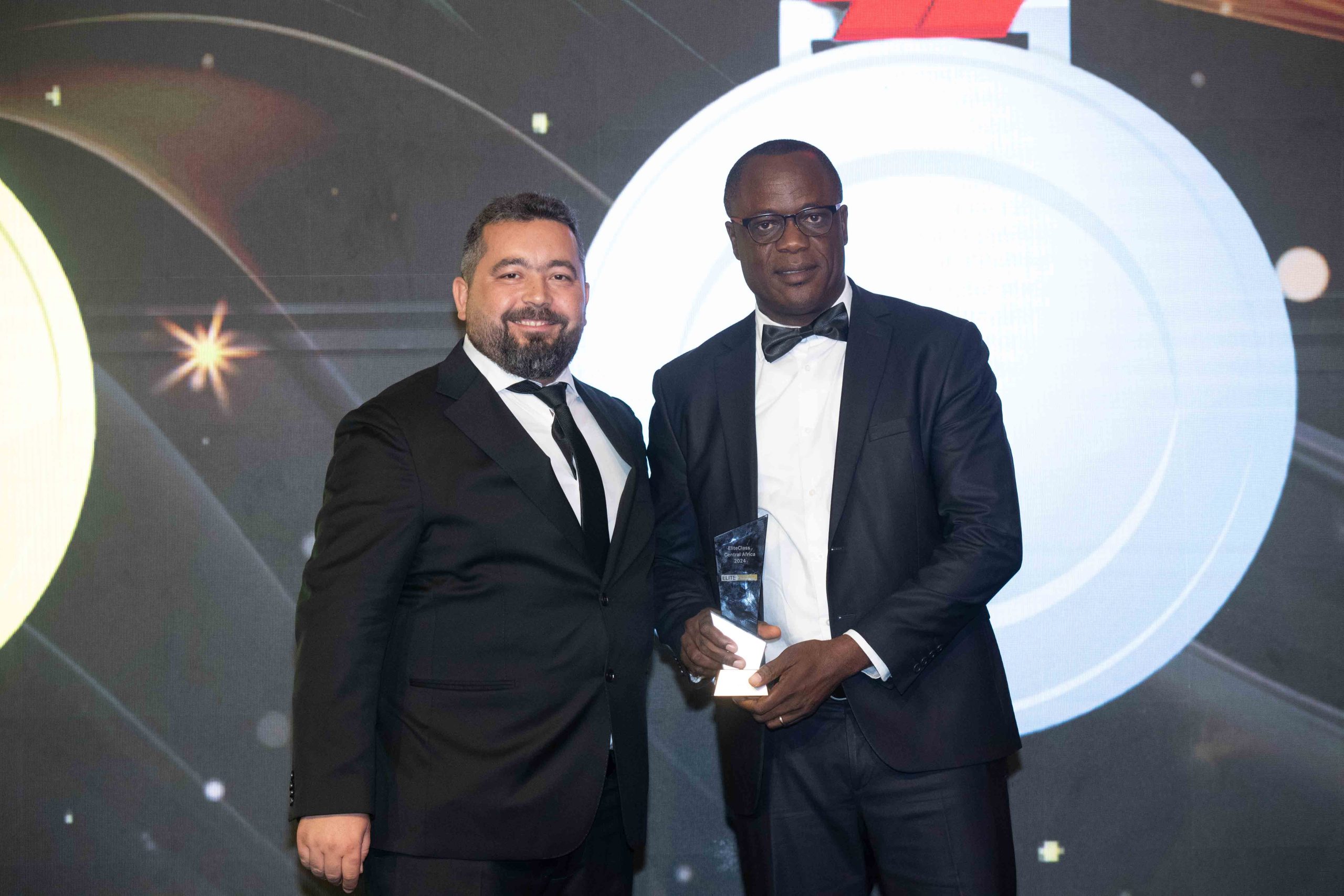
Nigeria’s firm, Weststar Associates, shines in Dubai, wins Daimler Truck EliteClass award
Weststar Associates Limited, Authorised General Distributor of Daimler Truck in Nigeria, has brought honour home all the way from United Arab Emirates specifically at the EliteClass 2024 Season Awards.
Daimler Truck Middle East Africa the Weststar team with the Silver Award in the Elite CSP (Customer Service and Parts) Performance category.
This is contained in a statement issued in Lagos, which added that the EliteClass 2024 Awards ceremony brought together 40 Daimler Truck Business Partners for a night of recognition and celebration.
Held at the One & Only Royal Mirage in Dubai, the prestigious black-tie event honoured top-performing general distributors that have demonstrated exceptional performance, dedication, and commitment to excellence in 2024.
The EliteClass 2024 Awards C
ceremony was the culmination of a year-long EliteClass programme for the Middle East and Africa measuring 24 categories across the entire business spectrum for Mercedes-Benz Trucks, Daimler Buses, and Fuso Trucks & Bus.
The awards highlighted the dedication and resilience of partners who have achieved outstanding performance and a remarkable commitment to excellence and contributed significantly to Daimler Truck’s success in the MEA regions.
President & CEO of Daimler Truck Middle East Africa, Mr. Michael Dietz, emphasized the importance of collaboration and performance-driven success during his opening address. “EliteClass 2024 is more than just an awards ceremony—it is a testament to the hard work, commitment, and shared vision of our partners.
“Their achievements continue to drive our brand forward, setting new benchmarks in customer experience and operational excellence across the region,” he said.
Weststar’s General Manager, Sales, Mr. Christopher Irumudomon, was present at the EliteClass 2024 Season Awards ceremony to accept the Silver Award in the Elite CSP (Customer Service and Parts) Performance category.
While presenting this award, the Daimler Trucks MEA leadership made the following statement: “Congratulations on your achievement in the EliteClass Central Africa 2024 Season. We are pleased to recognize your individual category achievement.”
The EliteClass 2024 Awards reaffirms Daimler Truck’s commitment to excellence, continuous growth, and the recognition of partners who drive success in an evolving industry landscape.
According to the statement, Weststar Associates Limited continues to fly the flag of the “brand with the star” high in Nigeria.
It said the company had remained the go-to home for all Mercedes-Benz needs in this region.
“With a dealership network that expands to the major regions of the country, along with highly trained and experienced sales and after-sales staff. Nigerians can rest assured that they will always have ‘the best or nothing’ at their disposal,” it stated.
-
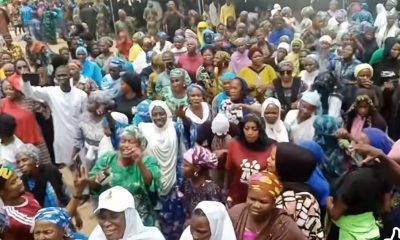
 metro16 hours ago
metro16 hours agoBREAKING: Senator Natasha defies restrictions, arrives homecoming rally by helicopter [VIDEO]
-

 metro2 days ago
metro2 days agoHow they murdered my Kano-bound passengers in Edo
-

 International2 days ago
International2 days agoIn pictures: Eid celebrations around the world
-

 metro22 hours ago
metro22 hours agoUromi: Edo residents flee towns over likely reprisal attack, arrest
-

 metro21 hours ago
metro21 hours agoBreaking: ‘Cancel your homecoming’ — Police tell Senator Natasha
-

 metro2 days ago
metro2 days ago‘I was offered N5bn bribe to impeach Fubara’
-

 metro2 days ago
metro2 days agoKano Gov Yusuf, Sanusi linked to Eid killings
-

 Sports2 days ago
Sports2 days agoNigerian boxer collapses, dies in ring during fight in Ghana









